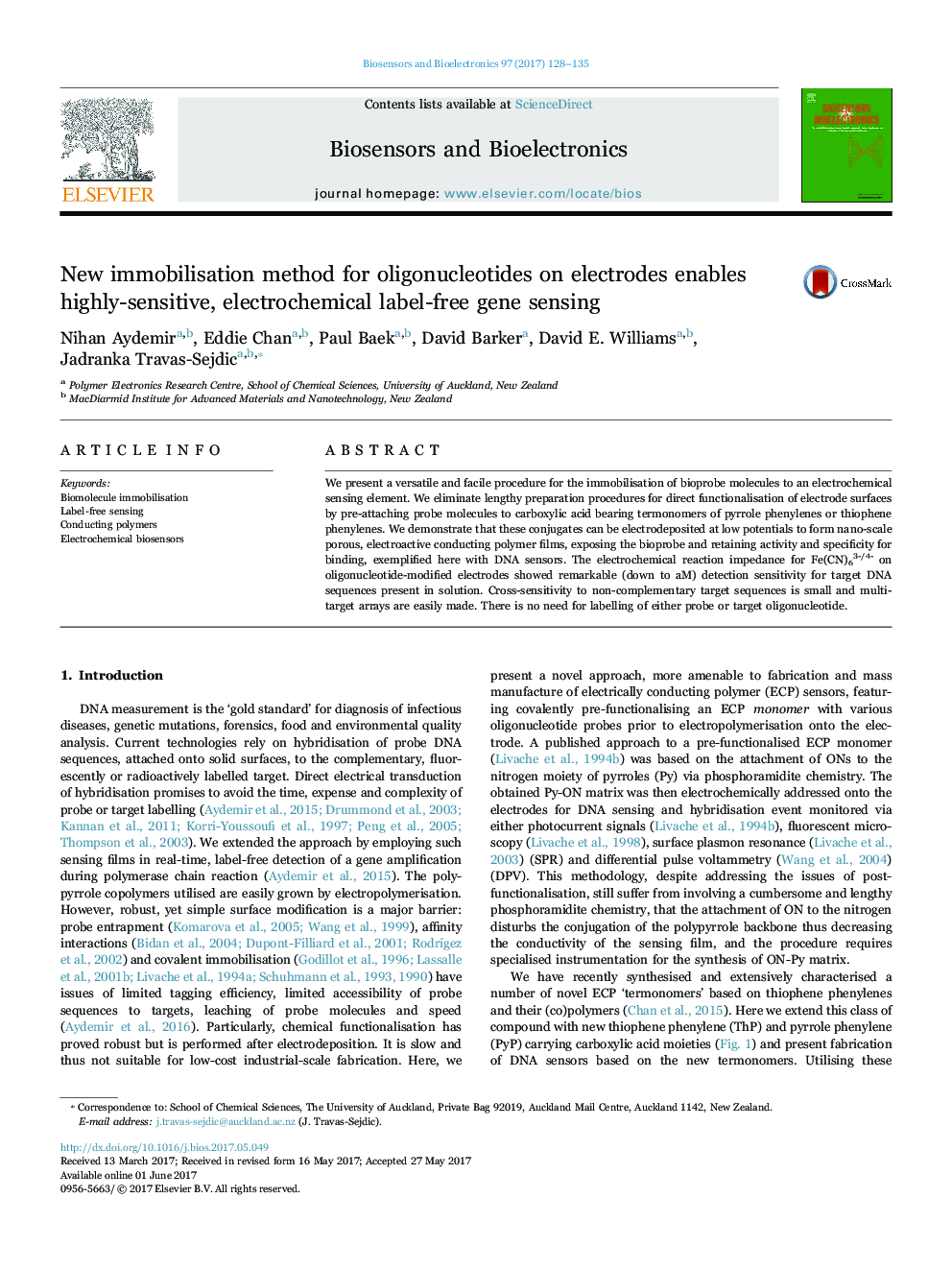| Article ID | Journal | Published Year | Pages | File Type |
|---|---|---|---|---|
| 5030977 | Biosensors and Bioelectronics | 2017 | 8 Pages |
Abstract
We present a versatile and facile procedure for the immobilisation of bioprobe molecules to an electrochemical sensing element. We eliminate lengthy preparation procedures for direct functionalisation of electrode surfaces by pre-attaching probe molecules to carboxylic acid bearing termonomers of pyrrole phenylenes or thiophene phenylenes. We demonstrate that these conjugates can be electrodeposited at low potentials to form nano-scale porous, electroactive conducting polymer films, exposing the bioprobe and retaining activity and specificity for binding, exemplified here with DNA sensors. The electrochemical reaction impedance for Fe(CN)63-/4- on oligonucleotide-modified electrodes showed remarkable (down to aM) detection sensitivity for target DNA sequences present in solution. Cross-sensitivity to non-complementary target sequences is small and multi-target arrays are easily made. There is no need for labelling of either probe or target oligonucleotide.
Related Topics
Physical Sciences and Engineering
Chemistry
Analytical Chemistry
Authors
Nihan Aydemir, Eddie Chan, Paul Baek, David Barker, David E. Williams, Jadranka Travas-Sejdic,
